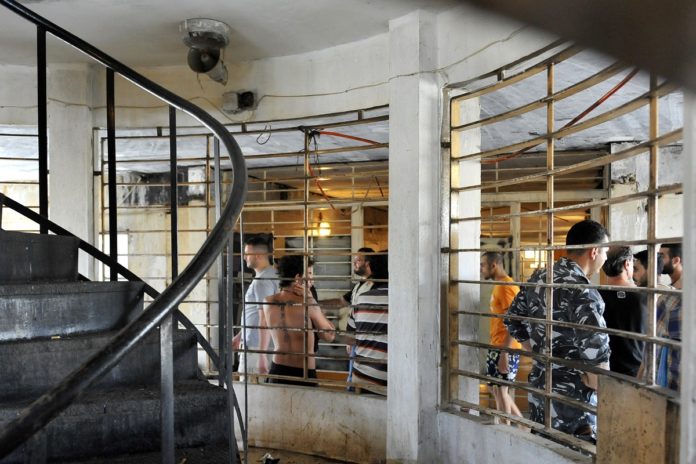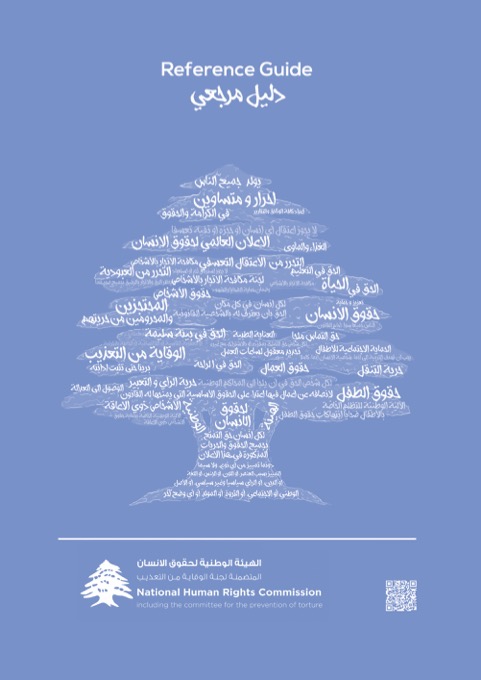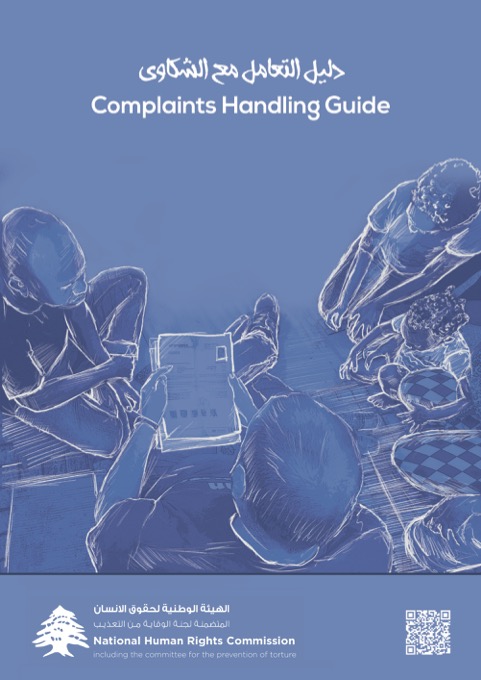هذا التقرير متاح أيضًا بـ: العربية (Arabic)
In accordance with the provisions of Article 26 of Law No. 62/2016 (establishing the National Human Rights Commission, including the Committee for the Prevention of Torture), the Committee for the Prevention of Torture is responsible for submitting observations, recommendations, and proposals regarding places of deprivation of liberty and the conditions of persons deprived of their liberty. These are forwarded to the Commission and the relevant authorities to improve the conditions of deprivation of liberty, the treatment of persons deprived of their liberty, and protecting them from torture or other cruel, inhuman, or degrading treatment or punishment.
The National Human Rights Commission, including the Committee for the Prevention of Torture, as an independent national oversight body formally known as the National Preventive Mechanism, reaffirms its commitment to continue exercising its preventive mandate during the conflict. This includes visiting detention centers when possible while considering various aspects related to the safety of its members, experts, and contractors and the principle of “do no harm.”
Due to the current security situation and the danger facing detention centers and detainees, the head of the National Commission for Human Rights, which includes the Committee for the Prevention of Torture, Dr. Fadi Gerges, assigned the expert contracted with the Commission, Brigadier General Joseph Kallas, on September 26, 2024, to communicate with the management of places of deprivation of liberty and detention centers, including police stations, prisons and detention centers located within areas exposed to Israeli attacks, to determine the conditions of detainees and ensure their protection.
Two squadrons of the Internal Security Forces operate in southern Lebanon, including many detention centers and prisons: the Nabatieh Squadron and the Tyre Squadron.
The Nabatieh Squadron includes the following centers: the Nabatieh Platoon, which consists of the Nabatieh Prison, the Khiam Platoon, the Jbaa Platoon, the Shebaa Platoon, the Zifta Police Station, the Doueir Police Station, the Marjeyoun Police Station, the Mays al-Jabal Police Station, the Adaisseh Police Station, the Burj al-Muluk Police Station, the Hasbaya Police Station, the Rashaya al-Fakhar Police Station, the Nabatieh Traffic Detachment, and the Houla Point.
Since the beginning of the Israeli attacks on Lebanon on 07 October 2023, many centers have been closed, namely Shebaa, Hasbaya, Adaisseh, Houla, and Mays al-Jabal. Later, due to the security situation, the Khiyam and Rashaya al-Fakhar platoons were closed. The detainees were transferred to the Nabatieh police station, the Douair police station, and the Nabatieh Palace of Justice, and those against whom arrest warrants were issued were transferred to the Nabatieh prison.
Since the beginning of the Israeli aggression on Lebanon on September 23, 2024, Marjeyoun prison has been closed, and detainees have been transferred to Nabatieh and Jezzine prisons. Sixty-seven detainees have also been transferred from Nabatieh to Zahle, Batroun, Roumieh, and Aley prisons.
According to available data, the administration’s contractor provides food and meals from non-governmental organizations to detention centers in the South.
The Tyre Squadron includes the following centers: Tyre platoon, to which Tyre prison is affiliated. Abbasiyeh platoon, Joya platoon, Qleila platoon, Tebnine platoon, Tebnine prison is affiliated, Qana platoon, Alma al-Shaab police station, Bint Jbeil police station, Rmeish police station, Ramieh police station, Ain Ebel point, Camps police station, Debel point, Tyre traffic detachment.
Since the beginning of the Israeli attacks on Lebanon on October 7, 2023, and due to the security situation, the police stations of Alma al-Shaab, Debel, Ain Ebel and Bint Jbeil have been disabled. It was also found that there were no detainees in the Joya and Qana factions. As for the Tyre faction, there were 42 detainees. As for the camp police station, there were four female detainees. Bint Jbeil prison held five detainees, and Tebnine prison held 76, all of whom were transferred to other prisons and detention centers: 34 to Roumieh prison, 24 to Zahle prison, 7 to Jbeil prison, and 7 to Batroun prison. In the Tyre traffic detachment, there was a minor detainee who was transferred to another center, and there are still five adult detainees. Fifteen detainees were also prepared to be transferred to Sidon, waiting for the center to receive them.
The centers within the Tyre Platoon suffer from the contractor’s failure to provide food. He provides the elements and families with as much as possible and bread from nearby bakeries.
With the expansion of the Israeli aggression, it was necessary to classify the detention centers in the Tyre and Nabatieh companies as unsafe places for detention. The continuation of the situation may prevent the contractor and the families from securing food, in addition to fears of being unable to secure diesel and water for the centers, which may lead to power outages and difficulty delivering medicines.
The National Human Rights Commission, which includes the Committee for the Prevention of Torture, recommends the following:
- Ensuring that all prisoners and detainees are transferred to detention centers far from the places affected by the attacks, especially in the various governorates of the South and the Bekaa, to avoid exposing prisoners to harm as a result of military operations.
- Consider reducing the number of prisoners by implementing early release plans, reviewing all cases of pre-trial detention, and expanding the scope of bail use to cover all cases except the most severe cases.
- Expedite judicial procedures and provide releases before judges. Coordinate the relevant authorities with the judiciary regarding conducting sessions via video call or online in all centers, especially in centers far from the courts, which reduces the burden on Internal Security Forces patrols, speeds up trials, and helps reduce overcrowding.
- Repairing and operating broken glasses in Lebanese areas that are not within the scope of Israeli attacks, especially since many of them do not require large sums of money to rehabilitate. Among these broken glasses: Gemmayzeh platoon, Al-Nahr platoon, Al-Bitar Hospital point, Dhour El-Shwer police station, Bteghrine police station, Baskinta police station, Ghazir platoon, Cordoba platoon, Casino du Liban point, Baabda police station, Kfarhim police station, Abdeh police station, Abboudieh police station, Akroum police station.
- Conducting close monitoring by the supervisory committee in the Internal Security Forces, prison commanders, and heads of detention centers on the nutrition contractors in the Internal Security Forces to ensure their access to all places of deprivation of liberty, including those located within the scope of Israeli attacks, and if this is not possible, providing dry and canned meals for a sufficient period to secure the detainees and members, in addition to ensuring that these centers continue to provide electricity, water, and primary medical care.


